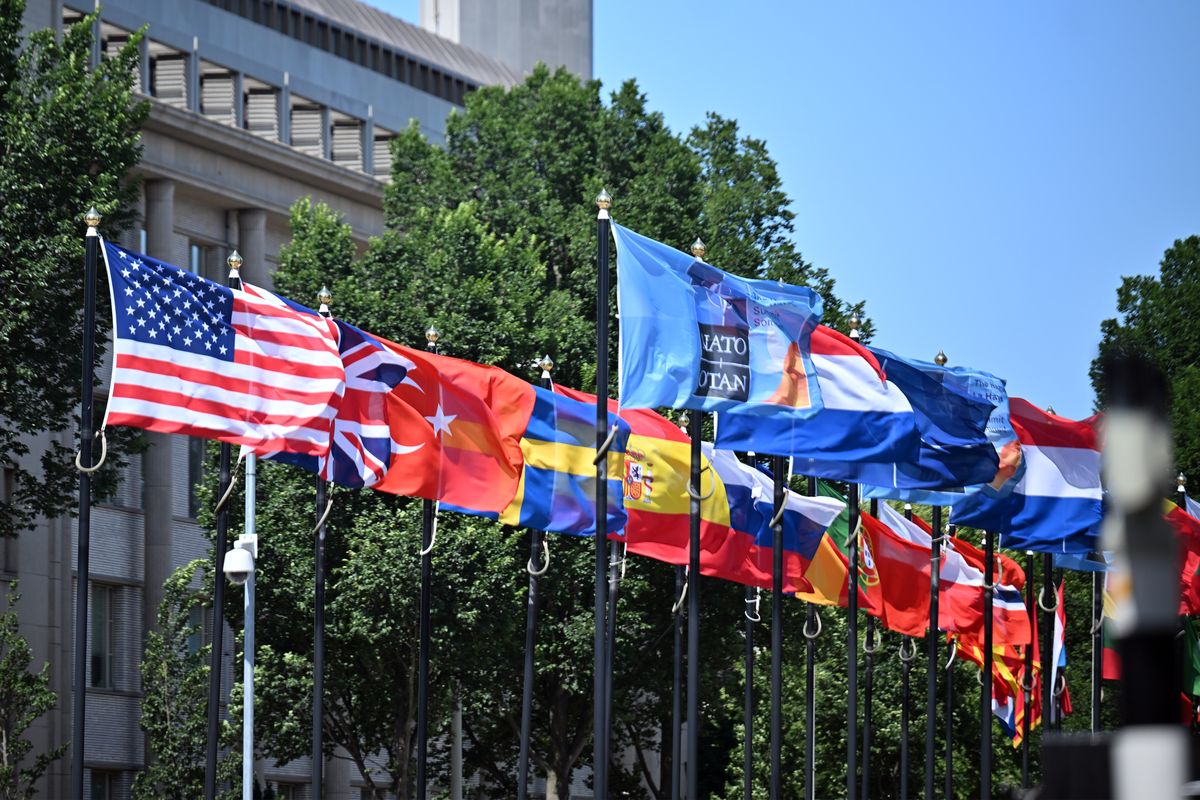President-elect Donald Trump will inherit a close defense alliance with Poland when he enters the White House later this month. America is getting ready to deploy additional troops to Poland. An armored brigade combat team from Fort Carson, Colorado will be based in western Poland soon. By April, a U.S. battalion will be in Poland’s northeast.
This comes as part of the North Atlantic Treaty Organization (NATO) decision at the NATO Summit in Warsaw last July to bolster defense in Poland, Estonia, Lativa, and Lithuania and to develop a tailored forward presence in Romania and Bulgaria, largely in an effort to deter Russian aggression, following Russia’s 2014 annexation of Crimea and recent military buildup in Kaliningrad (a Russian enclave sandwiched in between Poland and Lithuania) and all along its western border.
The U.S. has a continuous military presence in Poland with its aviation detachment at Lask Air Base. And under the European Reassurance Initiative, announced by President Barack Obama in 2014, the U.S. has increased training and exercises with Poland.
Yet at the same time the U.S.-Poland military alliance is deepening, Poland is taking steps that seem to be undermining democratic principles.
The Obama Administration took notice of this. President Obama even raised the issue during the Warsaw Summit, saying, “I expressed to [Polish] President Duda our concerns over certain actions and the impasse around Poland’s Constitutional Tribunal.”
Poland’s ruling Law and Justice party (PiS) has tightened its control over the judiciary, passing legislation in late 2015 that overhauled court procedures, making it harder for the Court to pass rulings. It also attempted to appoint five judges of its own choosing to the 15-member Constitutional Court – three were ruled unconstitutional.
After the PiS gained control of both parliamentary chambers in October 2015, the legislature passed an amendment that discarded the management of the public television and radio broadcasters, TVP1 and Polskie Radio, and gave the Treasury Minister power to appoint their successors. PiS continues to explore other means to control the media.
Neither the U.S. nor the European Union has taken concrete action to persuade Poland to reverse course. Although the European Commission, in an unprecedented move, activated its rule-of-law mechanism last year to investigate the situation, Poland has ignored all of the Commission’s recommendations. On December 21, Commission First Vice President Frans Timmermans announced, “We do believe there is a persistent problem with the rule of law,” but stopped short of enacting sanctions or any other tangible measures.
Poland is betting that Mr. Trump will toe the same line of relative inaction. “PiS welcomed the election of Donald Trump, despite his affinity towards Russia (seen as Poland’s main security threat), as the party believed that Hillary Clinton would put more emphasis on rule-of-law issues and more pressure on the Polish government to solve the constitutional crisis,” Piotr Buras tells The Cipher Brief.
Buras, who is the head of the European Council on Foreign Relations Warsaw office, continues, “Warsaw hopes that the fact that Poland fulfills its obligations within NATO by spending two percent of GDP on defense (and thus meets the expectations of the U.S. President-elect regarding the burden sharing within the alliance) will help ensure Donald Trump’s support for Poland’s interests.”
This view, however, may be a bit optimistic – Buras notes the “unpredictability of the future U.S. president and his approach to Russia.” Moreover, even if Mr. Trump takes a laissez faire approach toward Poland’s internal politics, the U.S. Congress might exert pressure on the NATO ally.
Last February, Senate Armed Services Committee Chairman John McCain (R-Arizona) and Senators Ben Cardin (D-Maryland) and Richard Durbin (D-Illinois) sent a letter to Polish Prime Minister Beata Szydlo expressing concern about “recent actions taken by the Polish Government that threaten the independence of state media and the country’s highest court and undermine Poland’s role as a democratic model for other countries in the region.”
Although Poland remains a critical U.S. military ally in Europe, it will be difficult for an American administration to completely ignore what Aleksander Smolar calls “not yet an authoritarian system, but […] more and more an illiberal democracy.”
Smolar, who is President of the Stefan Batory Foundation in Warsaw, tells The Cipher Brief the Constitutional Court issue, widespread cronyism, reforms that have given the ruling PiS total control over public media, and educational reforms “with the quite clear ideological objective to create a new ‘Pole,’ one that is conservative, nationalist, and a devoted Christian,” are all signs of Poland’s descent toward illiberalism.
The new U.S. administration will have to navigate an increasingly close bilateral defense partnership with an increasingly problematic political ally.
Kaitlin Lavinder is a reporter at The Cipher Brief. Follow her on Twitter @KaitLavinder.













